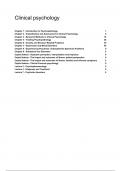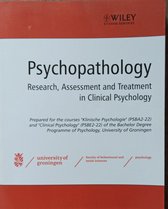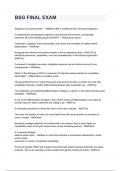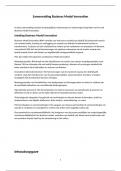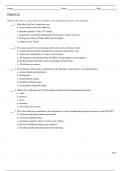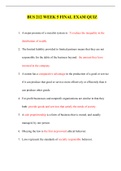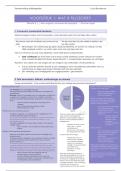Samenvatting
Clinical Psychology SUMMARY - Psychopathology & Capita selecta
- Instelling
- Rijksuniversiteit Groningen (RuG)
This is an elaborate summary on 2 books necessary for this course: Psychopathology by Davey, G. & Capita Selecta (2nd) by M. aan het Rot 1st book -> the chapters 1 through 4; 6 through 9 2nd book -> entire book (4 topics) + some lecture notes :)
[Meer zien]
